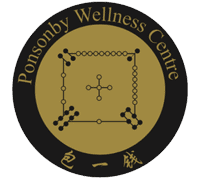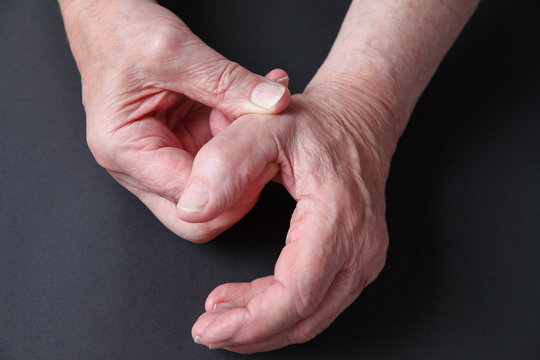What is Synovitis
The synovial membrane is a layer of tissue that lines the inside of the joint capsule and is found in the joints of shoulders, elbow, wrist, hand, knee, foot and ankle. When the synovial membrane becomes inflamed, it causes swelling and pain, and this inflammation is known as synovitis. While conventional treatments like medications and physical therapy are widely utilised, an emerging natural therapy gaining attention is acupuncture.
The picture demonstrated below shows the site of synovial membrane (red line) and covers the joints.

It is important to understand the membrane covers the entire surface of the joint, refer to the picture below (blue= synovial membrane)

The Essence of Synovitis
As previously mentioned, synovitis is when the synovial membrane becomes inflamed which causes problems in the joints. Its causes can vary, with some common ones such as:
- Overusing the joints (e.g squatting, lifting movements).
- Gout
- People already have arthritis (especially rheumatoid arthritis).
- Repeated injuries on the same joint
- Infections
- Trauma falls/car accidents
- Autoimmune disorders
Overall, people who have autoimmune disorders, already have arthritis and athletes are at greater risk for synovitis.
Complication of Synovitis (when untreated).
When treatment is not done, a chronic inflammation of the synovial membrane can lead to a long term damage of this structure, which permanently limit your ability to use the affected joints and the range of movement. Additionally, untreated synovitis can also lead to chronic pain of the joints and further inflammation, which may eventually cause fever.
Management and treatment- a look into acupuncture
There are various treatment that can be suggested for patients with synovitis based on the cause of the inflammation. The commonly used treatment methods are prescribed medication, such as NSAIDs (non-steroidal anti-inflammatory drugs) to control pain and inflammation, or corticosteroids, an anti-inflammatory steroid drug injected to control the inflammation. However, although both NSAIDs and steroids are beneficial to reduce symptoms of synovitis, it is associated with a range of adverse effects:
- Increased risk of developing ulcer
- Gastrointestinal bleeding
- Nausea
- Stomach pain
- Acne
- Easy bruising
- “puffy” pace caused by water retention
- Hypertension (high blood pressure)
- Risk for diabetes
Thus, acupuncture as a cornerstone of Traditional Chinese Medicine, has been a powerful alternative, yet a more natural treatment without side effect caused by drug toxicity, became more popular as a treatment for synovitis (and arthritis).
How Acupuncture Targets Synovitis
Reducing symptoms of arthritis
One of the solution acupuncture can treat synovitis is reducing the symptoms of arthritis (a risk factor for synovitis). It was found that acupuncture needle insertion can suppress cartilage damage and modulate macrophage polarisation (immune cells that plays a role in inflammation. When 4 acupoints were selected to manipulate on mice with arthritis using acupuncture, the macrophages (F4/80, CD86) expression were downregulated, and CD206 macrophage was increased when compared to the mice models with no acupuncture given.
What does this mean ?
F4/80 and CG86 are markers for M1 macrophages. F4/80 marker identifies the presence of macrophage in tissues, whereas CD86 is a pro-inflammatory marker for macrophage that activate T cells (a type of white blood cell activated during inflammation). Both a decrease in F4/80 and CD86 means that an anti-inflammatory environment is promoted and thus, dampening down the inflammation in arthritis individuals, leading to better symptom outcome. On the other hand, CD206 is a M2 anti-inflammatory marker for macrophage, therefore an increase in CD206 further reduce the inflammation. Overall, acupuncture can reduce inflammation in arthritis and improves synovial membrane injury.

Use of electroacupuncture to inhibit rheumatoid arthritis and thus synovitis
Angiogenesis, a development of newly formed blood vessel that is presence during a synovial membrane inflammation, was found to be reduced when treated with electroacupuncture. Electroacupuncture involves the normal insertion of acupuncture needles, then at the top of each needle are placed with electrode clips, to generate small and safe current that can further stimulate the acupoints and show a better effect. One study found that the markers for angiogenesis (VEGF and HIF-1a), where reduced when animals were treated with electroacupuncture, further suppressing angiogenesis and decrease arthritis and synovitis scores. In conclusion, the therapeutic potential of acupuncture can improve symptoms of synovitis.

Translation to Human Studies
You might be thinking that all the studies of acupuncture we have mentioned are done in animal studies, so does acupuncture work in human arthritis and synovitis?
Yes, acupuncture has shown benefit effect to reduce pain and inflammation, as well as other symptoms such as stiffness, in patients with arthritis and synovitis. It was shown in humans, moxibustion combined with acupuncture can suppress the NLRP3 inflammasome signalling pathway, which dampens down the pro-inflammatory response and thus reduce inflammation overall. Other use of Chinese herbs, such as Du Huo Ji Sheng Tang, can also suppress this pathway to reduce inflammation. However, it is important to note that Chinese herbs regulate the overall human body in addition to targeting the symptoms, so the herbal formula may vary across individuals.

How is Traditional Chinese Medicine Related to Synovitis?
The University of Chinese Medicine, Suzhou, China, observed patients with knee osteoarthritis using MRI images and evaluate the correlation with synovitis and Traditional Chinese Medicine syndromes, which you may heard about these, such as liver and kidney deficiency, blood stasis, redness, hotness and feeling of heaviness of knee joints. The study used MRI and measured the volume of fluid in synovial membrane, where they found swelling and hyperplasia (increased cell number), indicating inflammation in the arthritic patients. Additionally, patient diagnosed with Traditional Chinese Medicine syndromes in terms of redness, hotness and feeling of heaviness of knee joints, had remarkable synovitis shown on MRI.
Thus, acupuncture has evolved and became a popular natural treatment for synovitis and arthritis patients.
Contact Us
You can also book an appointment with our expertise acupuncturist here
Contact us via:
phone number: 021 2159963
email address: ponsonbywellness@gmail.com
Our Location
57 Sussex St,
Ponsonby,
Auckland 1021


